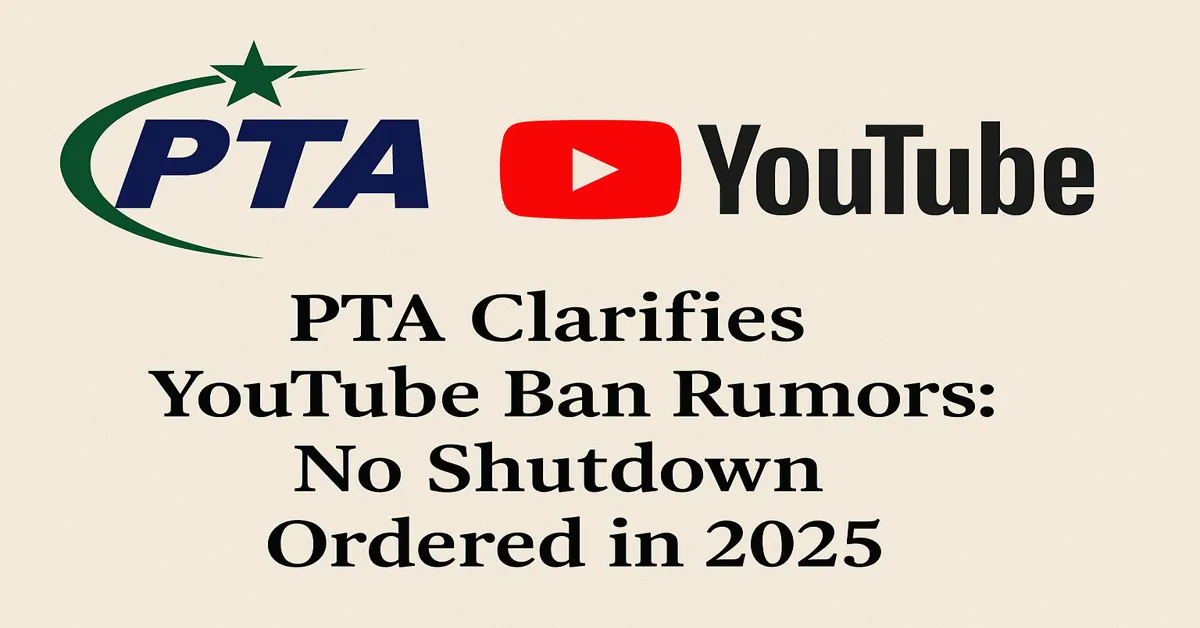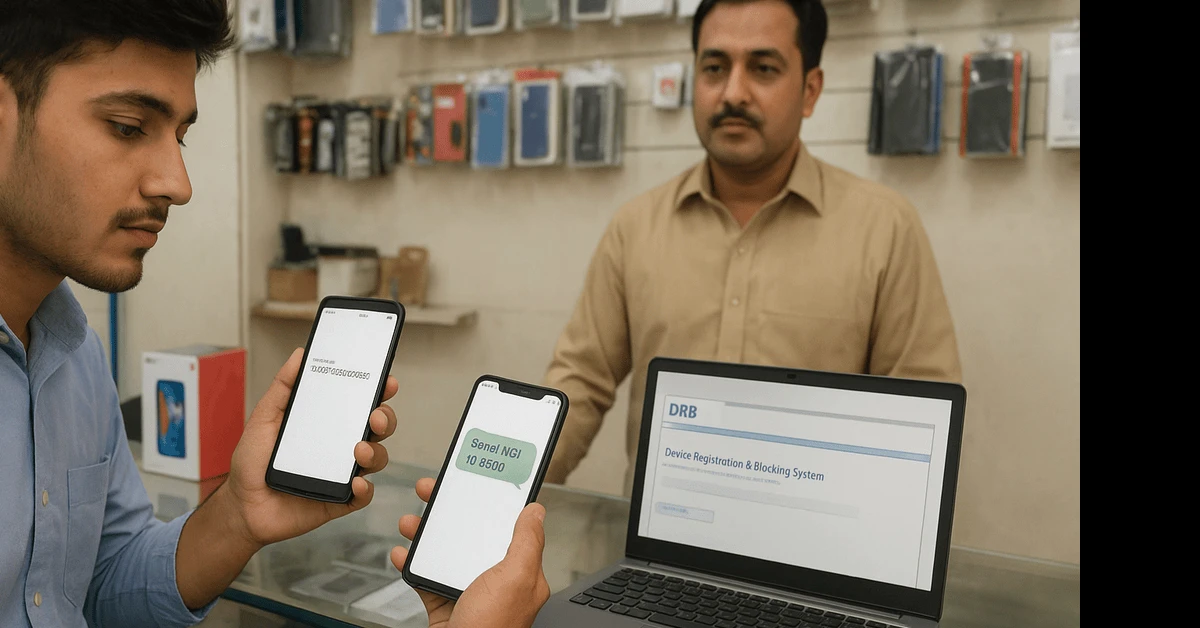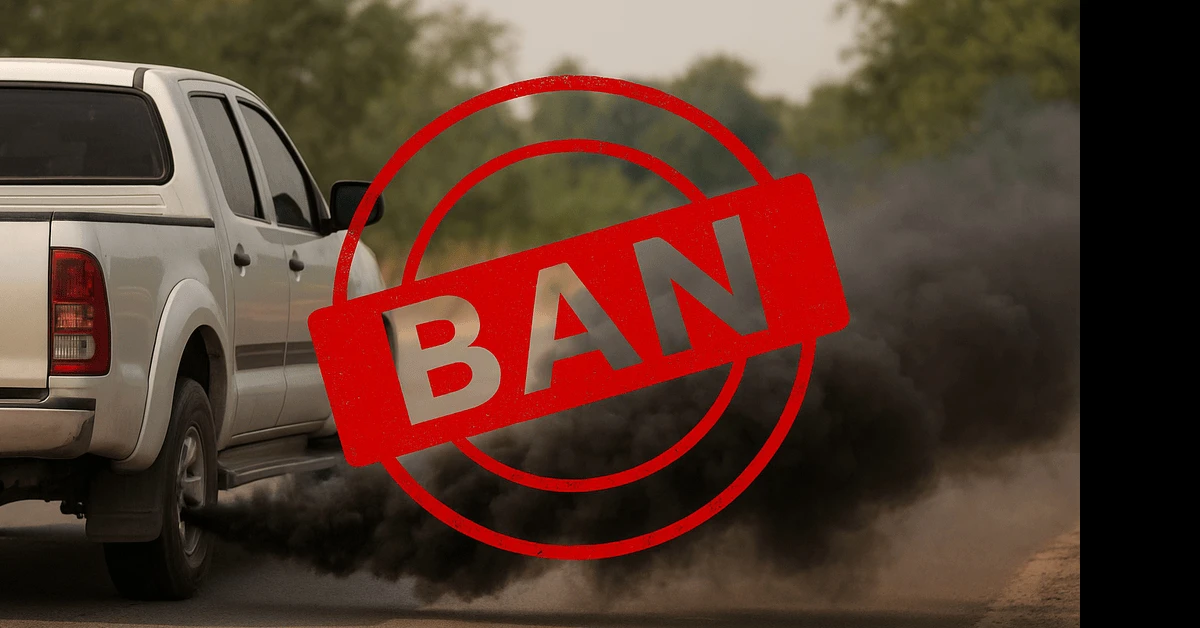Last Updated: July 2, 2025
PTA Clarifies YouTube Ban Rumors: No Shutdown Ordered in 2025

Islamabad, May 2, 2025 — The Pakistan Telecommunication Authority (PTA) has officially addressed and dismissed the growing rumors surrounding a potential YouTube ban in Pakistan. The speculation, which spread rapidly across social media and some news platforms, originated from an outdated notice that was misinterpreted as a current directive.
Where Did the Confusion Start?
The origin of the misinformation lies in a 2012 press release that referred to a temporary ban of YouTube in Pakistan following a Supreme Court ruling. Over the past week, this historical document began resurfacing on WhatsApp, Facebook, and Twitter, with many users believing it to be a recent government decision. This resulted in widespread confusion, concern, and debates across digital forums.
PTA’s Official Clarification
In an official statement released on May 2, 2025, PTA clarified that no such order has been issued in 2025 to ban or suspend YouTube or any other major online platform. The authority emphasized that the circulated press release was over a decade old and no longer holds any regulatory relevance.
“We urge citizens to verify any information before sharing it online,” the PTA noted. “Our verified channels—website and official social media accounts—are the best sources for authentic updates.”
Impact of Misinformation
This event serves as a stark reminder of how quickly misinformation can spread in today’s hyper-connected world. The fact that an obsolete document could create such a stir reveals the need for digital literacy and better information hygiene. Numerous users, including journalists and influencers, reacted to the old release without checking the date or source, further fueling the false narrative.
The PTA’s proactive approach in issuing a clarification prevented further confusion, but the damage caused by the viral misreporting highlights ongoing challenges in the age of social media.
Public Reaction
While some internet users welcomed the clarification, others criticized the rapid spread of misinformation. Many demanded stricter regulations for digital platforms to label or archive outdated content to prevent misrepresentation. Meanwhile, digital rights activists called for better public education regarding information verification.
The Need for Vigilance
The PTA’s clarification underscores the importance of critically evaluating content—especially those shared widely on social media. Misinformation not only erodes trust in public institutions but can also cause unnecessary panic and disrupt digital ecosystems.
Experts suggest taking simple steps such as checking publication dates, verifying official sources, and avoiding sharing unverified content. These actions can significantly curb the spread of disinformation.
You May Also Like:

How to Check if Your Phone Is PTA Approved Through DRBS and SMS 8484 in Pakistan...

Why Retired Cricketers Are Now Competing on YouTube, Not in Commentary Boxes...

Biological Sex Testing & Trans Athlete Ban: How Women’s Sports Policies Are Rapidly Changing in 20...

Why UK Has Lifted the Ban on PIA Flights After 5 Years – Full Details...

Islamabad Launches Vehicle Smoke-Emission Ban to Tackle Winter Smog...

OPPO Find N5 Price in Pakistan, Specs, Features & Review 2025...

OPPO Reno14 5G Price, Specs & Features in Pakistan (2025)...

